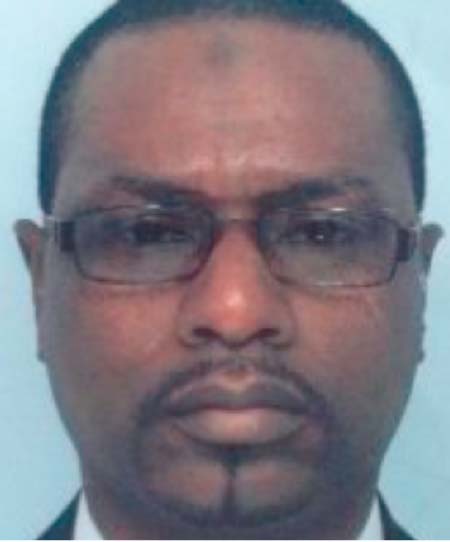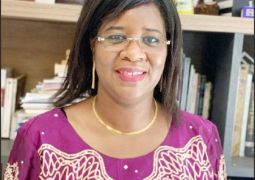
Excerpt
Education Report
From the 1930s onwards, education specialists were invited to review the education system and submit reports, with recommendations, on the state of education in The Gambia. Despite the problematic political policies of the colonial offices, some of these recommendations served to transform education.
Following the education specialists’ recommendations, a study was conducted which informed the policies that dictated the transformation and the improvement of the education system. Most of the recommendations would be reviewed to determine the financial, material, and human resource implications. Three reports proved to be most significant to the policy formulations and education transformation in The Gambia: the Jeffrey, the Baldwin, and the Sleight reports. They provided the basis for the transformation of the syllabus, the education system, and the expansion of schools, particularly in the provinces.
The Ralph C. Allen Report - 1939
Published in 1939 by Ralph C. Allen, who served as the first Director of Education, this critical document was in two parts: the first elaborated on education in Bathurst (which was considered then as the Colony) and the second on the Protectorate. In the annexe of the report were several diagrams of the structure in the reorganization of the schools.
The report, entitled Education in The Gambia – Present Organization and Possible Future Development, was quite comprehensive, and, for the first time, there was a critical analysis of the situation of education in The Gambia. The salient points Ralph made were the organization of the schools, the syllabus used and the relationship between the government and the missions. Along with the analysis, he made recommendations on several pertinent areas, particularly on grants, reorganization of the school system and on the curriculum. This 23-page document would lay the foundation stone of several education policies and reforms that changed education politics in The Gambia.
Observations
Allen noticed that the number of years spent in the elementary schools were long and inconsequential. The attendance was poor, and most parents could not pay the school fees. The school equipment and the textbooks left a lot to be desired, and no grant was available to help provide or upgrade the equipment or the necessary textbooks. At the time of the report, there were no official vocational schools. Allen found this indispensable because he believed that students who finished the early stage of secondary school could opt to do vocational training. The most important observation was the absence of all forms of post-secondary education except that of the teacher training school.
In the Protectorate, only Armitage School existed as a government elementary school, and consequently, the demand surpassed the number of places it could accommodate. Most of the towns and villages’ demands for schools were not met, and the few missionary schools in these towns and villages seemed not to ‘be run along the right lines’.
Recommendations
Some of his most important recommendations were as follows:
- The number of years in elementary school should be shortened.
- A vocational training institution should be put in place to accommodate students from Standard IV. The vocational school should take the form of a higher secondary school where practical skills would be taught to pupils who had completed elementary Standard IV. Though Reading, Writing, and Arithmetic would form the basis of the program, other core subjects, such as Carpentry, Metalwork, Horticulture, Drawing and, for girls, Domestic Science, and Infant Welfare would be primary in the syllabus. The vocational school would complement the existing Technical Institute under the Wesleyan Methodist Mission.
- Offer scholarships to students to attend Fourah Bay, Yaba and Achimota colleges in Sierra Leone, Nigeria, and the Gold Coast (Ghana), respectively or go to the U.K.
- Improve the number of trained teachers to supply the expanding quantity of elementary schools.
- Organize a local book and stationery store.
- Help schools in the purchase of equipment.
- Increase accommodation and facilities for mixed farming at Armitage School.
- Establish one-teacher native authority schools
Some of these recommendations would be studied seriously, but only a few would be implemented.
The Jeffery Report - 1950
If there is any report that had been seriously considered during the colonial period, it was the Jeffery Report. Published in March 1950, it was produced following a survey conducted by Dr George Baker Jeffery to advise on establishing an examination council.
Dr Jeffery (1891-1956) was a great mathematician-physicist in the early 20th century. He was Director of the University of London Institute of Education before his appointment to make a survey and recommend the establishment of a standard examination body.
In October 1949, upon the invitation of the Secretary of State for the Colonies, Arthur Creech Jones, Dr Jeffery came to the West African British Settlements to study their state of education and offer advice on the possible establishment of a West African Examinations Council (WAEC). Between December 1949 and March 1950, he conducted an extensive study on the four British colonies (the Gold Coast, Nigeria, Sierra Leone, and The Gambia) and forwarded his recommendations to establish the West African Examination Council.
Upon his arrival in Africa, he spent eight weeks conducting research and making consultations. His objective was to consult with African government civil servants, teachers and school principals, the media, and other sources to have a comprehensive opinion of the state of education. His findings and recommendations were then published in a report.
Jeffery highlighted the importance of maintaining the quality of education above all else. He argued that the quality superseded the need to teach children only to be trained for a job. He believed that it was crucial for developing education in West Africa.
The Baldwin Report - 1950
In the mid-20th century, a commission was headed by Thomas Hayward Baldwin, an education specialist, to make a report about education in The Gambia. On behalf of the commission, Baldwin presented a comprehensive report entitled Recommendations on the Aims, Scope, Content and Methods of Education in The Gambia in 1950. The 41-page document first made a report on the existing system to highlight the shortcomings and the weaknesses. A comprehensive list of main recommendations was enumerated for the colonial office at the end of the report.
The main points of interest noted by Baldwin were the harmonious cohabitation of Christians and Muslims, the vain efforts of the missions in trying to convert a people entrenched in their belief of ‘Mohammedanism’, the poor content of the syllabus as well as the lack of learning materials, the poor number of teachers and the degrading school system in the Protectorate.
Among the main recommendations made were:
- Skip the infant class in the elementary school system.
- Use the vernacular as a medium of instruction in the primary schools in the Protectorate.
- Appoint an officer to produce the vernacular material.
- Train a teacher at the School of Arabic Studies at Kano, Nigeria.
- Transform the Divisional Councils to Local Education Authorities.
- Visit the schools in the Protectorate biannually by an education officer.
- Investigate the language difficulties at the Bathurst Primary schools.
- Consult with other West African Education Departments on textbooks and the syllabus for primary schools.
- Award scholarships for the training of teachers for secondary schools.
- Offer Gambians the chance to do their Higher Teachers Certificate at Fourah Bay College.
- Expand the technical schools and introduce other subjects in the mechanical trade.
- Organize evening classes in Bathurst in Handicraft, Homecraft, and Literacy.
The recommendations highlighted were few among many others made by the Baldwin Commission. However, an attached paper to the document considered most of the recommendations as too expensive to put into effect. The prevision for the essential elemental requirements amounted to £22,200.00 for Bathurst and £2,300.00 for the Protectorate. The expenses seemed exorbitant to the Colonial Office, and thus more than 70% of the proposals were never really put into policy or applied during the period concerned.
The Gwilliam Report – 1957
Another significant report is the Gwilliam report of Freda H. Gwilliam[1], delivered as a speech in 1957 at the joint meeting of the Royal African Society and the Royal Empire Society on 5 December 1957. This report would recommend including women as part of the colonial officials responsible for education. Following such a recommendation, the first woman was appointed to supervise primary school education at the level of the Ministry of Education in The Gambia.
The Sleight Report - 1965
UNESCO contracted Dr G. F. Sleight to conduct a survey in education in The Gambia to put forward recommendations to the UNESCO office. His 63-page survey was divided into nine more parts with an annexe. The nine parts dealt with main areas of interest such as primary and secondary education, vocational and tertiary education, girls’ and adult education, employment opportunities, administration, and the financial implication of his recommendations. Each part was concluded with recommendations relating to the topic discussed.
Compared to the reports that preceded it, what was new in the Sleight Report was the detailed and comprehensive statistics on the progress made in the previous years. Sleight was careful to express the realities on the ground, the strengths and the shortcomings of the education system established under the British model and the interpretations of the program, curriculum, and syllabus about the socio-cultural context of the learners.
When the report was published, several changes were occurring in the political and education arena of The Gambia:
- The Colony and the Protectorate had been merged under one nation. Previously, all decisions – of whatever nature, were taken separately both for the Colony and the Protectorate, and even the education systems of the two were different.
- The education system had changed from standard to primary and secondary. This change, however, was gradual as the systems were not uniform for the Colony and the Protectorate.
- The West African Examination Council was inaugurated and oversaw the evaluation of learners in the four-member countries.
- School infrastructure developed rapidly as the need for student enrolment grew. Schools were identified in three forms: primary, post-primary (secondary technical school), secondary modern schools (junior secondary), and grammar schools (high schools).
Sleight’s observations resulted in radical recommendations that influenced several changes in the post-independent Gambia. Sleight observed that the syllabus was extremely poor or non-existent, a significant setback in education development. His first observation was the reactions from the parents, teachers, area councillors, and representative organizations to primary school education:
The first consideration would appear to be a clear conception of the function of primary education. […] The primary school leaver is unfitted for employment, he has no skill which might ultimately lead to self-employment, as if he does not get into a secondary school, he becomes one of the dangerously “half-educated”, frustrated and potentially a juvenile delinquent. (Sleight 1950)
Sleight concluded that if primary school leavers were considered thus, then he believed that there was something wrong with the syllabus content. He argued that the school had failed if the pupils were left with no skills or aptitudes. Though such a conclusion could be considered radical, his argument was based on the premise that a pupil living in rural areas needed to learn skills related to the person’s active life. He, therefore, felt that the school content should be related to the pupil’s professional life.
As for the secondary schools, he echoed some of the worries felt by the government concerning the number of places available to accommodate primary school leavers. He suggested an expansion of secondary schools in the rural areas, a double stream system in the existing schools, an improvement of teacher training, and a restructuring of the existing schools.
The syllabus content was one of his primary concerns. He strongly suggested that the content be entirely reorganized, and he believed that a syllabus did not exist. The first observation was the use of the vernacular as a medium of instruction in schools, particularly in rural areas. This had been a subject of controversy. Sleight’s impression was to use English as a medium of instruction, as the latter was the country's lingua franca. However, he recommended that the vernacular stay in the school, but as he was no local expert, he proposed that all decisions related to teaching and training of teachers in that subject be left for the local experts. As for the subjects to be revised and simplified, he suggested the following:
- English
- Arithmetic
- Rural studies in Provinces; modified science and crafts in Bathurst.
- Social studies and other cultural subjects, Qur'ānic studies, the vernacular, music. (Sleight 1950, 13)
Teacher training, as well as library lending, were also strongly recommended by Sleight.
The SHM Jones Report - 1970
Mr Jones published in 1970 a document under the Department of Education entitled Educational Policy, Legislation & Administration. This legal document served to outline the legal implications of government in the education sector and school development in The Gambia. Some of the areas discussed in the document were the aims and policy of the national education system and the structure of educational management.
Jones discussed at length the policies, the responsibilities of the government, and how the community’s role was defined. Also defined were the role of the private schools, institutions, and associations, as well as actors involved in education, issues of girls and women’s education, disabled children, and teacher training.
The definition of the national system was amplified as the stages of progress were identified as pre-primary, primary, secondary, vocational, and technical, teacher training and adult education.
The document also outlined the legal texts passed during the previous periods that had general implications on the education system. The Principal Act, also called the Education Act, as amended by the Education Ordinance 1964. Under this act, education regulations and the school premises regulations were made. Other enactments were:
- The Gambia High School Act passed in 1958
- The West African Examinations Council Act passed in 1953
Author
Dr Cherno Omar Barry is the Vice Chancellor/President of the International Open University. He has served as Permanent Secretary, Ministry of Higher Education, Research, Science and Technology, Ministry of Health and Social Welfare, Ministry of Youth and Sports, Ministry of Defence and at the Office of the President in The Gambia. He holds a B.A. in English from the Saint Mary’s University, Halifax, Canada, an M.A in Semiology, an MPhil and a PhD in Comparative literature from the University of Limoges, France. Cherno, an Associate Professor of Comparative Literature taught for eight years at the University of The Gambia before joining the National Commission for UNESCO. He later served for two years as Gambian representative to the Executive Board of UNESCO in Paris, France, before he was appointed Permanent Secretary 1, Office of the President and then later re-designated as the Permanent Secretary at the Ministry of Higher Education, Research, Science and Technology. Cherno is an accomplished academic, literary critic, editor and researcher.
[1] Freda H. Gwilliam was appointed Assistant Educational Adviser for the Secretary of State for the Colonies. Her mission was to conduct a study on girls’ education in the British settlements.



